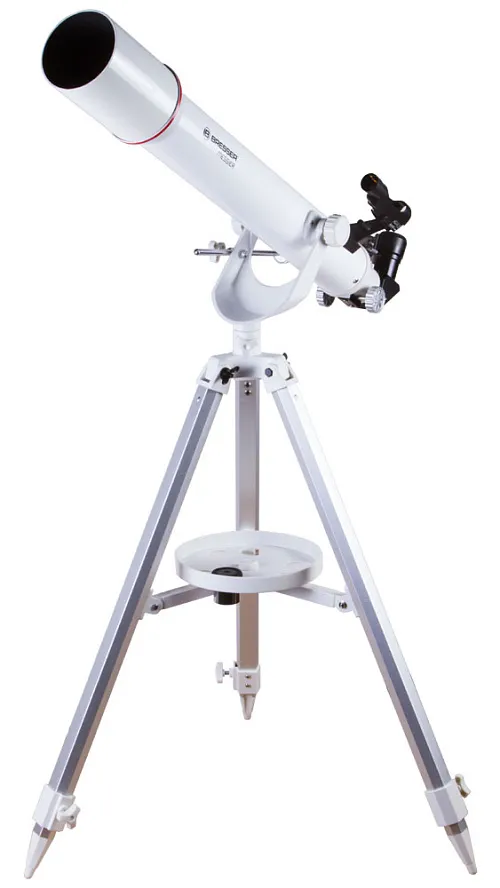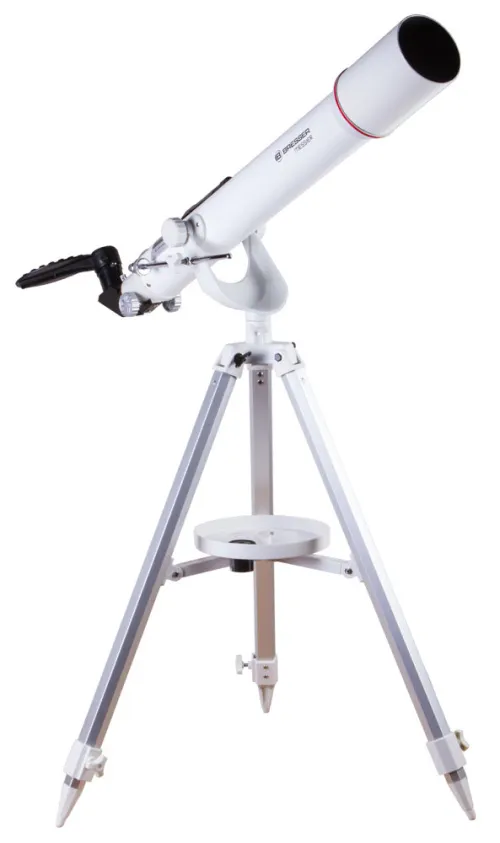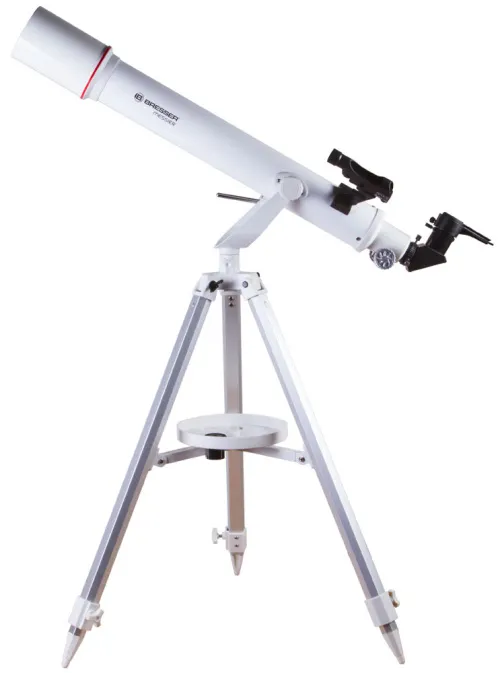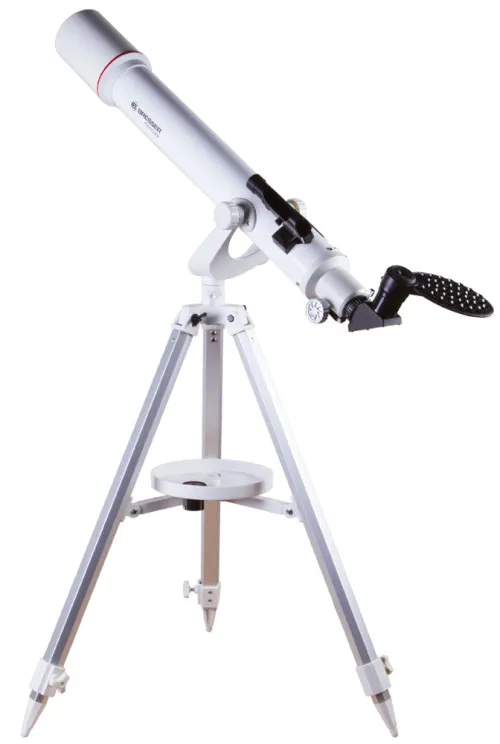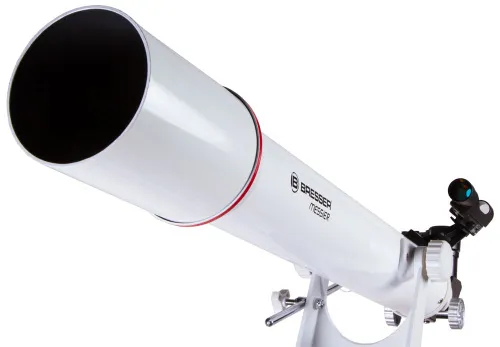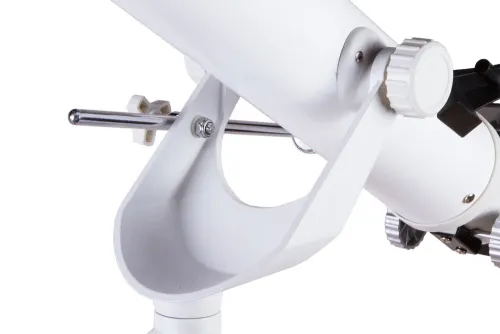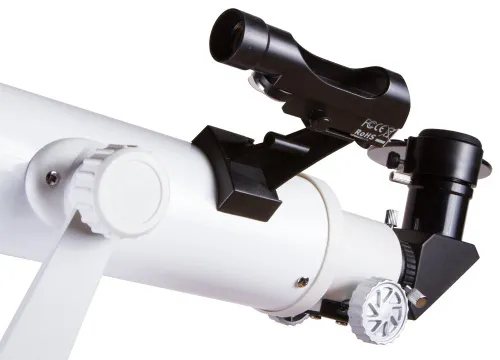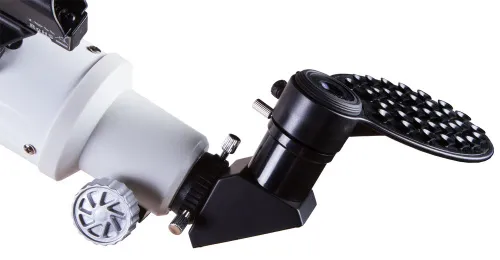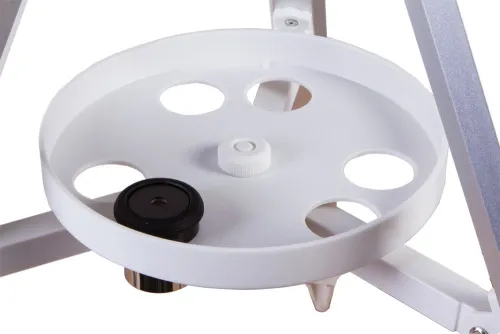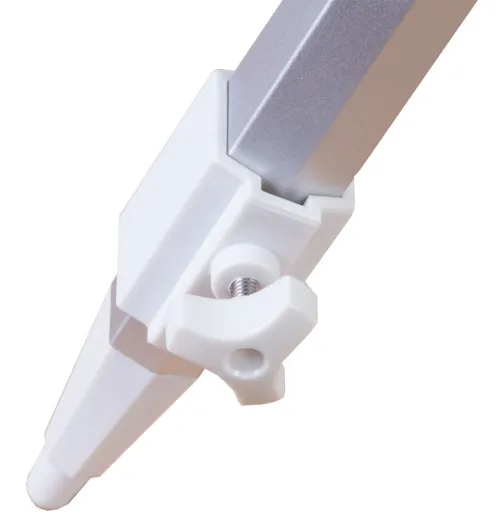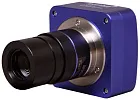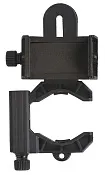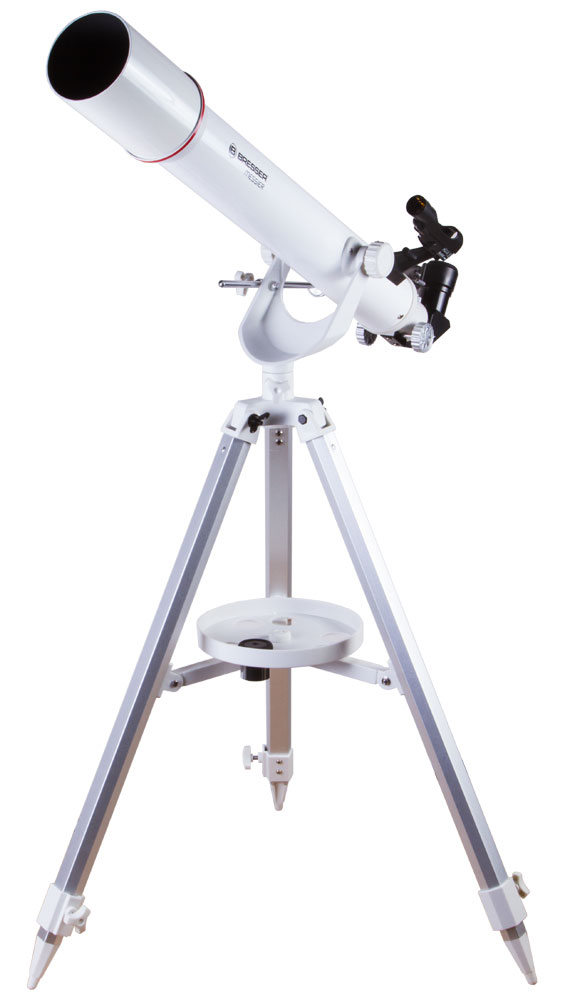Bresser Nano AR-70/700 AZ Telescope
Achromatic refractor. Aperture: 70mm. Focal length: 700mm
Refractor
Optical design
70
Aperture – the diameter of the light-collecting lens or mirror that the telescope uses to collect light
700
Focal length – the distance from the primary lens or mirror to the point at which the light is focused
| Product ID | 72334 |
| Brand | Bresser GmbH, Germany |
| Warranty | 2 years |
| EAN | 4007922050850 |
| Package size (LxWxH) | 89x31x19 cm |
| Shipping Weight | 4.5 kg |
Description
When looking at the technical data, 70mm aperture may not look too impressive. During the observation the impact of the 36 % more light gathering power in respect to a 60mm refractor are easily visible: Details are seen more clearly in the Bresser Nano AR-70/700 AZ and from a distance of 600 million km the main cloud bands on the planet Jupiter get visible.
Do you want to capture what you see? With the included smartphone holder bracket you can use your smartphone to easily take colour pictures of celestial objects — like through a telephoto lens!
Main features:
- MgF2-coated optics
- Magnification with supplied accessories: 35x, 77x, (max. suggested: 140x)
- Focal distance, aperture ratio: 700mm, f/10
- azimuthal mounting
- eyepiece diameter: 31.7mm (1.25")
The kit includes:
- Messier refractor
- Altazimuth mount
- Aluminium tripod with accessory tray
- Eyepieces: 9mm, 20mm
- Red dot finder
- Diagonal mirror 1,25" (31,7mm)
- Smartphone camera adapter
- Software & rotatable star-map
Specifications
| Product ID | 72334 |
| Brand | Bresser GmbH, Germany |
| Warranty | 2 years |
| EAN | 4007922050850 |
| Package size (LxWxH) | 89x31x19 cm |
| Shipping Weight | 4.5 kg |
| Optical design | refractor |
| Optical scheme | achromat |
| Optics coating | magnesium fluoride |
| Objective lens diameter (aperture), mm | 70 |
| Focal length, mm | 700 |
| Lowest practical power, x | 35 |
| Highest practical power, x | 140 |
| Aperture ratio | f/10 |
| Resolution threshold, arcseconds | 1.97 |
| Eyepieces | 9mm (77x), 20mm (35x) |
| Eyepiece barrel diameter, in | 1.25 |
| Finderscope | red dot |
| Tripod | aluminum |
| Tripod height (adjustable), mm | adjustable |
| Telescope control | manual |
| Mount | alt-azimuth |
| Power supply | CR2032 battery (3V) – 1 pc. |
| Optical tube material | aluminum |
| User level | beginners, experienced users |
| Assembly and installation difficulty level | easy |
| Observed object | planets of the Solar System, terrestrial objects |
References
and downloads
and downloads
Reviews
Telescope accessory installation diagrams (.pdf) (13.12.2019)
Convenient diagrams that describe how to install additional accessories on refractors and catadioptric telescopes
Convenient diagrams that describe how to install additional accessories on refractors and catadioptric telescopes
Levenhuk Telescope Assembly Guide (14.12.2019)
Find out how to assemble a telescope on an example of the Levenhuk Skyline 90x900 EQ telescope
Find out how to assemble a telescope on an example of the Levenhuk Skyline 90x900 EQ telescope
A quick guide for novice astronomers (16.12.2019)
This short guide will help you avoid typical mistakes and learn more about telescope and mounting types
This short guide will help you avoid typical mistakes and learn more about telescope and mounting types
A telescope: how to start observing (16.12.2019)
The basics of astronomical observations for beginners
The basics of astronomical observations for beginners
Frequently Asked Questions – Telescopes (20.04.2020)
In this article we have gathered answers to some of the most frequently asked questions about telescopes
In this article we have gathered answers to some of the most frequently asked questions about telescopes
Telescope Under a Microscope: How Does It Work? (18.05.2020)
How telescopes work?
How telescopes work?
First Steps in Astronomy Made Easy! (18.05.2020)
You can actually perform observations from your balcony!
You can actually perform observations from your balcony!
Beginner’s Short Guide to Telescopes (18.05.2020)
All about telescope sizes, types, magnification, and mounts
All about telescope sizes, types, magnification, and mounts
How to use a telescope (18.05.2020)
Learn how to set up and use the telescope properly
Learn how to set up and use the telescope properly
Astronomical observations in the city (18.05.2020)
Astronomy in light-polluted skies. Find out what you can observe in the city
Astronomy in light-polluted skies. Find out what you can observe in the city
Telescopes for children (19.05.2020)
Read an interesting comprehensive article on telescopes for little astronomers
Read an interesting comprehensive article on telescopes for little astronomers
Things you can see with a telescope based on its aperture (19.05.2020)
Celestial objects you can observe with telescopes of different apertures
Celestial objects you can observe with telescopes of different apertures
What can you see with a telescope (19.05.2020)
Colored and vivid images of galaxies, planets and star clusters entrance everyone who is fascinated by boundless space
Colored and vivid images of galaxies, planets and star clusters entrance everyone who is fascinated by boundless space
What is a refracting telescope? (20.05.2020)
Find an interesting review on the history of the changes to a refracting telescope
Find an interesting review on the history of the changes to a refracting telescope
How to choose a telescope (20.05.2020)
To make the process of choosing a telescope easier, we will tell you about the characteristics of the most popular types of telescopes today
To make the process of choosing a telescope easier, we will tell you about the characteristics of the most popular types of telescopes today
A short guide to refractor telescopes: choose your equipment wisely (20.05.2020)
Learn everything you need to know about refractor telescopes to make the right choice
Learn everything you need to know about refractor telescopes to make the right choice
Questions and Answers
Submit your question/feedback

